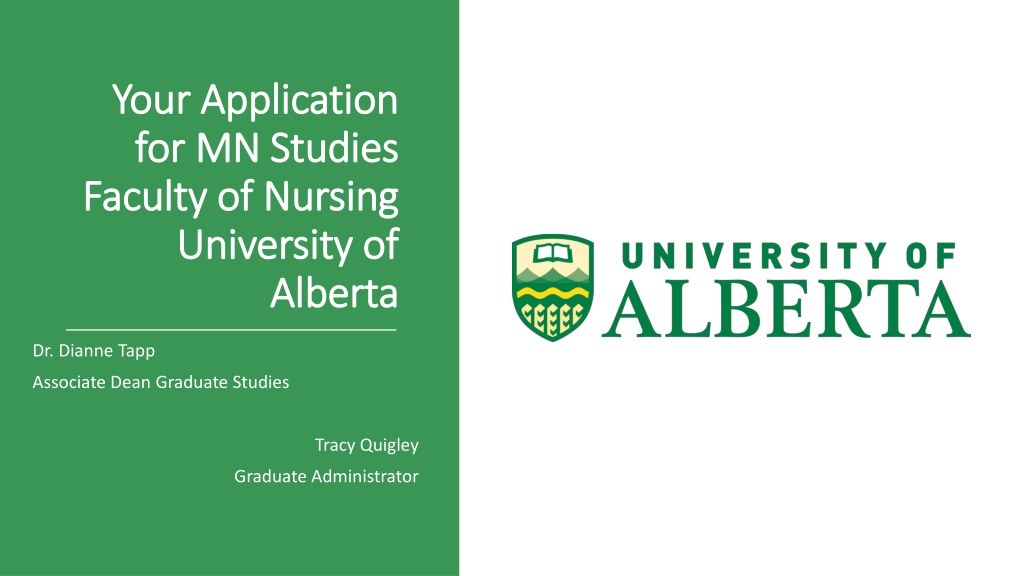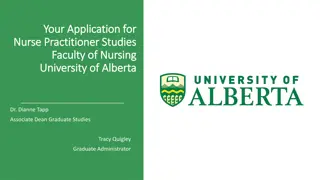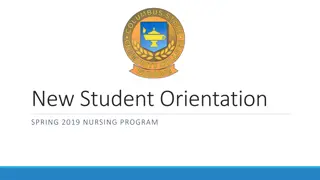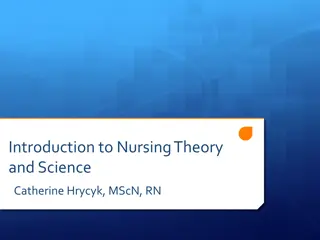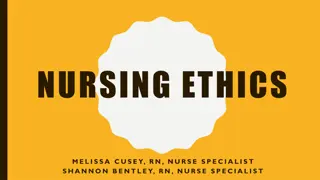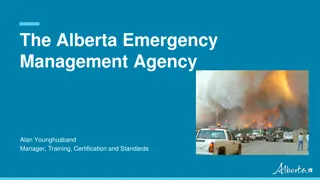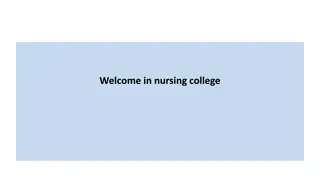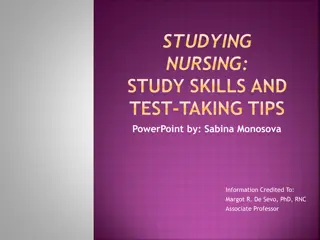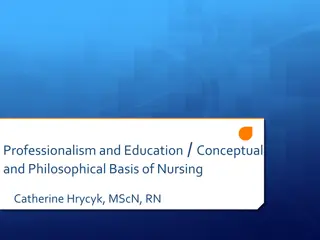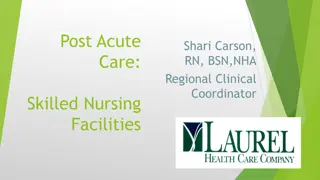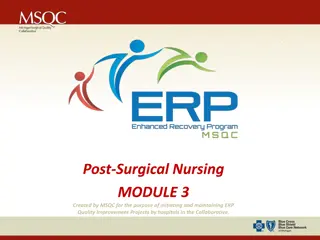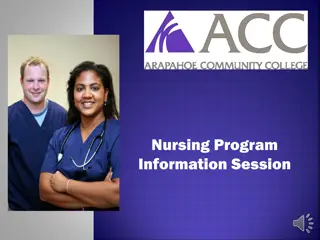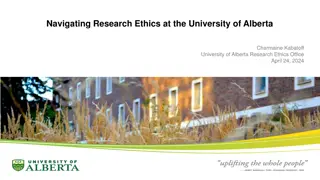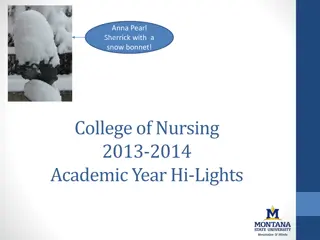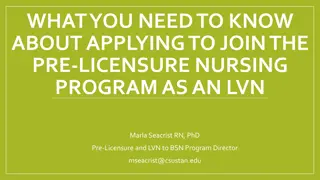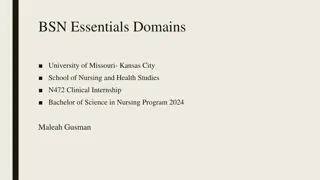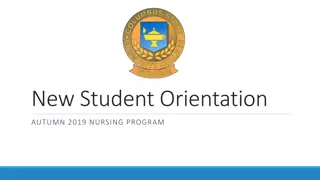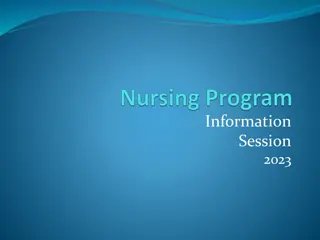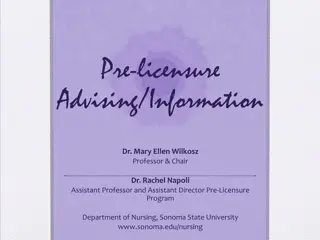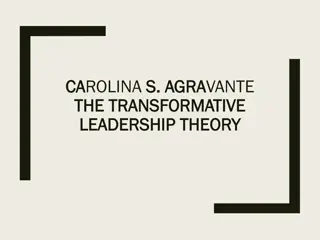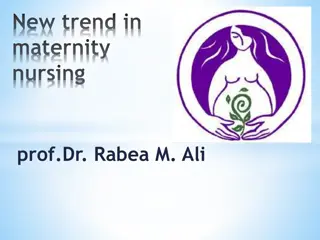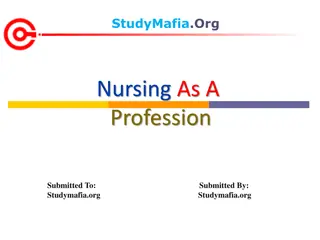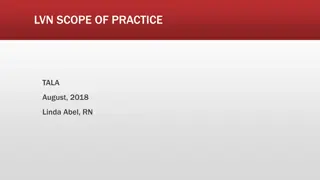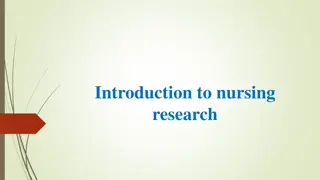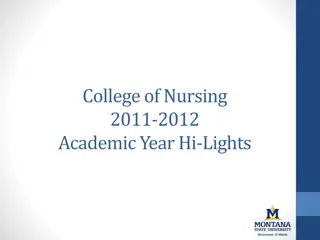Master of Nursing Studies Program at University of Alberta
Explore the Master of Nursing Studies (MN) program at the University of Alberta, offering opportunities for professional development, research training, and leadership roles in nursing. With a strong reputation, flexible delivery options, and a variety of study pathways, this program prepares students for doctoral studies and diverse career opportunities in the field of nursing.
Download Presentation

Please find below an Image/Link to download the presentation.
The content on the website is provided AS IS for your information and personal use only. It may not be sold, licensed, or shared on other websites without obtaining consent from the author. Download presentation by click this link. If you encounter any issues during the download, it is possible that the publisher has removed the file from their server.
E N D
Presentation Transcript
Your Application Your Application for MN Studies for MN Studies Faculty of Nursing Faculty of Nursing University of University of Alberta Alberta Dr. Dianne Tapp Associate Dean Graduate Studies Tracy Quigley Graduate Administrator
AGENDA AGENDA Why pursue master s studies in Nursing? Why pursue master s studies in Nursing at the University of Alberta? What does the MN program look like? How do I submit my application?
Desire to advance professional development and research training; Why pursue Why pursue master s studies in master s studies in Nursing? Nursing? Intent to move quickly into leadership roles in diverse settings; Interest in continuing studies toward PhD for academic and research career pathways.
Why pursue Why pursue master s master s studies in studies in Nursing at the Nursing at the University of University of Alberta? Alberta? Establish relationships with top Canadian Nursing faculty High impact programs of research (e.g. Aging, frailty, social inequity, global health) Commitment to equity, diversity, inclusiveness and reconciliation Award winning researchers and teachers Flexible delivery on-campus & online Talented classmates become your professional network as distinguished alumni
Tied for #1 in reputation ranking with U of T Tied for #2 in research ranking with UBC The Faculty has long-standing track record & reputation for graduate programs MN program established in 1975 PhD program established in 1991 (first PhD Nursing in Canada) Faculty of Nursing Faculty of Nursing Ranks #2 in Ranks #2 in Canada and #18 Canada and #18 Globally Globally
What does the MN program look like? What does the MN program look like? Both course-based and thesis- based options offer preparation for studies at the doctoral level Part-time or full-time options: Part-time usually 3 years to completion Full-time complete within 20 months Courses are offered in both face- to-face and online/blended formats Credit loads vary slightly Course based Thesis based NP Course-based NP Thesis-based - 36 30 42 39 All MN students complete a project either as a thesis or as a capping exercise (course-based students)
Assumes that inquiry and research are intimately linked with learning & practice Connect students to each other, to faculty, to faculty research, to questions and issues in Nursing, and to diverse ways of knowing and inquiring Students engage in Community of Inquiry courses to develop progressive skills: ask good questions, analyze information and current literature, and move through structured, guided, and independent approaches to research and inquiry. Courses build toward completion of capstone and thesis projects. Explicit commitment to equity, diversity, inclusivity, and reconciliation. MN Conceptual MN Conceptual Framework Framework Connected Connected Curriculum Curriculum (Fung, 2017) (Fung, 2017)
3 Clusters of Course work: 3 Clusters of Course work: (final approval of MN curriculum revisions is expected in January 2021) (final approval of MN curriculum revisions is expected in January 2021) 1. Core Courses (3 Credits each) Foundations of Scholarship/Critical Thought Research Foundations Understanding Complex Systems Translating Knowledge Philosophy & Ethics in Nursing Inquiry 2. Community of Inquiry Courses Community of Inquiry I, II, III* (1 Credit each) Engaging with Nursing Scholarship Research Question & Literature Review Building Collaborative Inquiry Applied Inquiry I & II (3 Credits each) Framing the Inquiry Focus Grand Challenge Questions
3. Students select one of four Advanced Focus areas of study 3. Students select one of four Advanced Focus areas of study 2 courses (6 credits) Education Perspectives on Nursing Pedagogy Approaches to Learning and Teaching Innovation in Nursing Leadership Advanced Nursing Leadership in Health Systems Nursing Power and Policy in Health Care Leadership Research (Thesis option only) Knowledge Synthesis Operationalizing Research Design Clinical-NP (8 courses - 24 credits + 800 Clinical hours)
Example Timetable for Full Example Timetable for Full- -time Studies time Studies
Admission Requirements for MN studies Admission Requirements for MN studies Additional requirement for Advanced Clinical-Nurse Practitioner focus Requirements for all MN students An undergraduate degree in Nursing with an admission GPA of at least 3.0 on the 4-point scale from the University of Alberta, or an equivalent institution (calculated on the last 60 credits of graded coursework completed). Three letters of reference. An undergraduate course in each of statistics and research methods, with a minimum grade of B (or equivalent), preferably completed within the past six years. A minimum of one year of nursing experience is typically required. Where applicable, applicants must provide proof of English Language Proficiency Students applying to the clinical focus stream must provide evidence of 4500 hours of RN experience appropriate to selected NP focus (Adult, Family All Ages, or Neonatal) and be a regulated member in a Canadian jurisdiction. (i.e. must hold current RN license throughout the program)
Post Post- -Masters Nurse Practitioner Masters Nurse Practitioner Graduates of MN programs who subsequently wish to pursue NP studies and licensure may apply to complete Advanced Clinical-NP Focus courses after completing their MN studies in another advanced focus stream or at another university This route enables new grads to complete an MN while working to meet the prerequisite of 4500 clinical hours in advance of NP studies 8 clinical courses (24 credits) and 800 clinical hours Studies completed over 20 consecutive months (part-time with exception of final winter semester)
The University of Alberta has a significant award and funding program for graduate students, with awards offered both by the Faculty and the University. Please consult the website of the Faculty of Graduate Studies and Research for additional information. Some graduate supervisors may be able to provide funding through the external grants that support their research projects. Graduate supervisors will assist students to apply for funding from sources that are appropriate to the student s program of studies and level of academic achievement. Graduate student funding may be available from the Faculty of Nursing through a program of graduate teaching and research assistantships. Graduate students in Nursing are strongly encouraged to be prepared to self-fund their studies as there is no guaranteed funding for graduate students. Graduate student funding
How do I submit my application? How do I submit my application? Application deadline: February 15, 2021 All documents, including all reference letters must be received by this date Application to Faculty of Graduate Studies and Research Create an account and submit all required documents as pdf online https://www.ualberta.ca/graduate-studies/prospective-students/apply-for- admission/index.html Required background document for Master of Nursing Entire application is reviewed by Faculty of Nursing Admissions Committee https://www.ualberta.ca/nursing/programs/graduate-student-resources-and- services/forms-and-guidelines.html $100 non-refundable application fee
Choosing referees for your reference letter: Choosing referees for your reference letter: Three reference letters are required Normally two academic references; one personal/work reference Examples of possible referees: An academic who supervised your work/volunteer contribution on a project. A faculty member who taught you a class and can speak to your academic excellence. An academic who knows of you through committee work or student leadership activities. A clinician who supervised you in clinical practice (eg. Practicum, UNE or other employment). A former teacher, community service organization leader who can attest to your strengths/contributions. An email with a secure link will only be sent to your referees after you submit and pay for your application. Reference letters need to be in PDF and must be on your referee s institutional or business official letterhead or it will not be accepted.
https://www.ualberta.ca/nursing/ programs/graduate-programs- and-admissions/master-of- nursing-program/admission- criteria-and-application- process.html Contact: Faculty of Nursing Graduate Office Nursing.graduate@ualberta.ca This Photo by Unknown Author is licensed under CC BY
